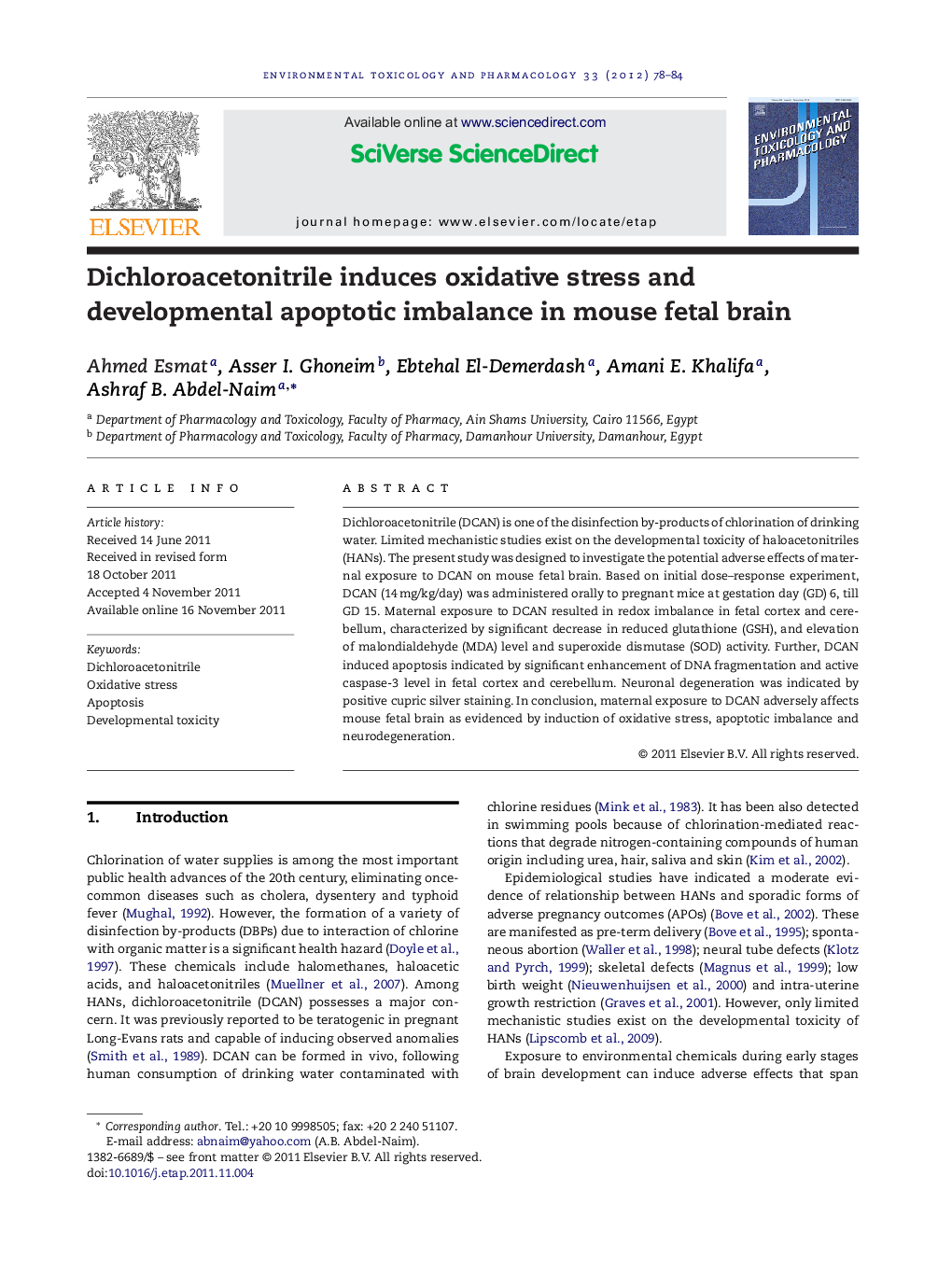| Article ID | Journal | Published Year | Pages | File Type |
|---|---|---|---|---|
| 2584109 | Environmental Toxicology and Pharmacology | 2012 | 7 Pages |
Dichloroacetonitrile (DCAN) is one of the disinfection by-products of chlorination of drinking water. Limited mechanistic studies exist on the developmental toxicity of haloacetonitriles (HANs). The present study was designed to investigate the potential adverse effects of maternal exposure to DCAN on mouse fetal brain. Based on initial dose–response experiment, DCAN (14 mg/kg/day) was administered orally to pregnant mice at gestation day (GD) 6, till GD 15. Maternal exposure to DCAN resulted in redox imbalance in fetal cortex and cerebellum, characterized by significant decrease in reduced glutathione (GSH), and elevation of malondialdehyde (MDA) level and superoxide dismutase (SOD) activity. Further, DCAN induced apoptosis indicated by significant enhancement of DNA fragmentation and active caspase-3 level in fetal cortex and cerebellum. Neuronal degeneration was indicated by positive cupric silver staining. In conclusion, maternal exposure to DCAN adversely affects mouse fetal brain as evidenced by induction of oxidative stress, apoptotic imbalance and neurodegeneration.
► Dichloroacetonitrile adversely affects mouse fetal cortex and cerebellum as follows: ► Redox imbalance shown by alterations in reduced glutathione and superoxide dismutase activity. ► Induction of apoptosis indicated by enhancement of DNA fragmentation and active caspase-3 level. ► Neuronal degeneration as shown by positive cupric silver staining.
